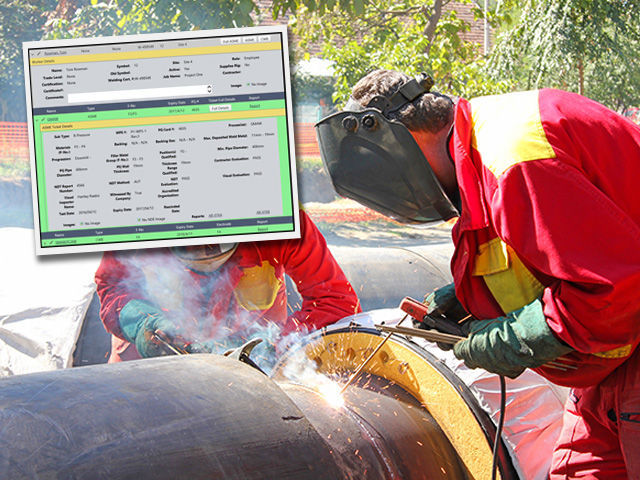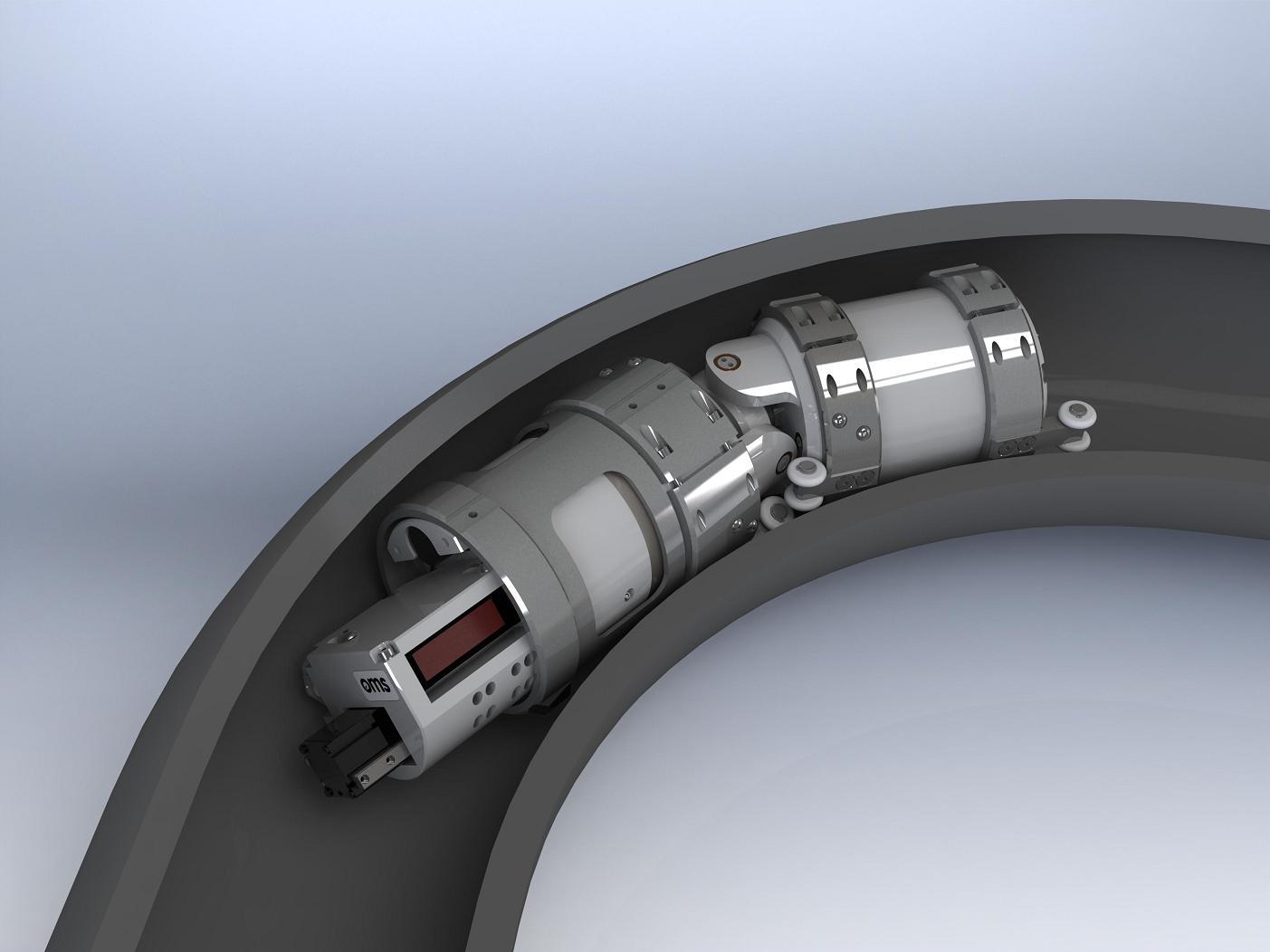Protect Your Investment: Thorough Pipeline Welding Inspection for Assurance
Wiki Article
Maximizing Effectiveness: Pipe Welding Inspection Ideal Practices
By applying best methods for pipe welding assessment, companies can enhance processes, reduce mistakes, and boost task timelines. The careful interest to information called for in welding examination holds the crucial to the long-term longevity and reliability of the pipelines, making it a topic of utmost value in the market.
Relevance of Reliable Welding Examinations
Reliable welding evaluations play an essential function in making sure the architectural integrity and safety of pipelines. Correct assessments are important to identify any type of problems, interruptions, or imperfections in the welded joints that might compromise the total honesty of the pipeline system. By carrying out extensive inspections, assessors can find issues early, preventing prospective leakages, tears, or failings that can have significant environmental and safety and security effects.Timely and precise welding assessments also help in maintaining compliance with market requirements and guidelines. Adhering to these requirements is not only a legal requirement but additionally a required action to ensure the reliability and longevity of the pipes. Effective examinations can add to cost savings by decreasing the need for expensive repairs or replacements due to welding issues that could have been avoided or fixed during the assessment procedure.
Utilizing Technology for Examinations
To boost the effectiveness and precision of pipeline welding examinations, the combination of advanced innovations has become significantly critical in making certain accurate and extensive assessments of bonded joints. Utilizing innovation for evaluations supplies many benefits, including enhanced performance, improved precision, and improved precaution. Among the key technical improvements in pipeline welding assessments is using automated ultrasonic testing (AUT) systems. These systems can check welds swiftly and precisely, providing thorough information on potential problems or problems within the weld joint. In addition, remote visual evaluation (RVI) devices such as robot spiders equipped with electronic cameras enable examiners to gain access to and assess difficult-to-reach areas without the requirement for substantial disassembly or manual treatment. The execution of electronic systems for information analysis and reporting improves the evaluation process, enabling real-time data interpretation and seamless documents. By accepting these technological remedies, pipeline welding examinations can be carried out better, resulting in better welds, boosted total safety and security, and minimized task timelines.Establishing Clear Evaluation Methods
Developing clear evaluation procedures is crucial for making sure consistency and integrity in the pipe welding evaluation process. These procedures act as a collection of guidelines that detail the details actions, criteria, and approaches to be followed throughout assessments. By clearly defining the evaluation protocols, all assessors associated with the procedure can comprehend their roles and responsibilities, causing an extra standard and effective assessment workflow.
Normal review and updates Recommended Site to the evaluation procedures are additionally crucial to adapt to altering sector criteria and demands. By continuously refining and boosting the procedures based upon comments and lessons discovered, pipe welding assessments can maintain the highest about his top quality criteria and governing compliance.
Training and Accreditations for Inspectors

Educating and qualifications for inspectors are critical in making certain the competence and proficiency of people entrusted with looking after pipeline welding procedures - Pipeline Welding Inspection. Appropriately trained examiners have the required understanding and abilities to successfully assess weld high quality, adherence to welding procedures, and compliance with sector requirements and policies
Accreditations, such as those offered by the American Welding Society (AWS) or the American Petroleum Institute (API), verify an examiner's know-how and ability to do inspections to the greatest requirements. These accreditations often require strenuous training, assessments, and recurring specialist development to make sure that assessors stay current with the most current innovations in welding modern technology and assessment techniques.
In enhancement to official certifications, continual training programs play a vital duty in boosting assessors' capabilities. These programs cover a large range of topics, including welding processes, problem discovery, security protocols, and relevant codes and requirements (Pipeline Welding Inspection). By investing in extensive training and accreditations for examiners, firms can support the honesty of their pipe welding jobs and reduce the risks related to substandard welds
Continual Renovation in Inspection Procedures
Building upon the foundation of trained and licensed assessors, constant improvement in evaluation processes is crucial for ensuring the recurring quality and conformity of pipeline welding operations. By implementing a system of continuous renovation, pipe welding evaluation procedures can progress to fulfill the transforming needs of the sector, technological improvements, and regulative requirements. This involves regularly examining and reviewing examination techniques, devices, and procedures to identify locations for enhancement.One trick aspect of constant enhancement in evaluation processes is comments. Gathering input from inspectors, welders, engineers, and various other stakeholders allows for an extensive analysis of current methods and the recognition of potential locations for improvement. Furthermore, leveraging information and analytics can supply beneficial understandings into the effectiveness of inspection processes, allowing educated decision-making for optimization.
In addition, buying training and advancement programs for assessors can ensure that they are equipped with the current expertise and skills to perform their responsibilities effectively. Continuous improvement is a site web dynamic process that requires devotion and commitment from all stakeholders to drive excellence in pipeline welding assessment techniques.
Final Thought
Finally, taking full advantage of performance in pipeline welding assessments is important for guaranteeing the top quality and safety of facilities tasks. By utilizing modern technology, developing clear methods, giving appropriate training and qualifications for assessors, and continually boosting examination procedures, companies can simplify their operations and lessen dangers. It is vital for industries to prioritize reliable welding examinations to keep high criteria and meet regulative needs.
Effective inspections can add to cost financial savings by decreasing the demand for pricey repairs or substitutes due to welding problems that might have been protected against or fixed throughout the examination process.
Developing clear evaluation procedures is important for guaranteeing uniformity and dependability in the pipe welding evaluation process. By clearly specifying the evaluation methods, all examiners entailed in the process can comprehend their responsibilities and functions, leading to a more efficient and standard inspection process.
Clear inspection protocols aid in decreasing the likelihood of mistakes or oversights during the examination procedure.Structure upon the foundation of qualified and trained assessors, continual enhancement in inspection processes is vital for guaranteeing the recurring top quality and compliance of pipe welding operations.
Report this wiki page